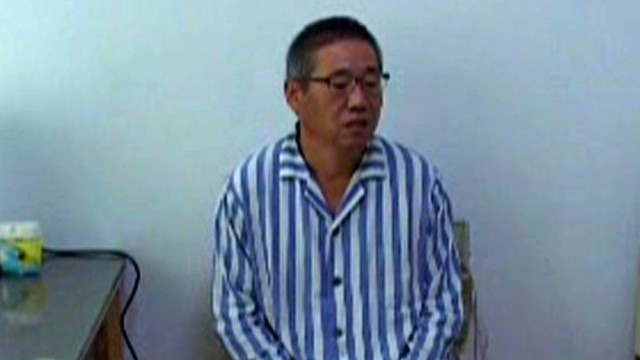By Ben Kopp
Impunity Watch Reporter, Europe
MOSCOW, Russia – Russia incarcerated a political dissident in a psychiatric ward, in a move that many call a return to Soviet Era punitive psychiatry. Human Rights Watch has questioned both the charges and the sentence.
On 6 May 2012, over two dozen protesters allegedly rioted against Russian President Vladimir Putin’s inauguration, set for the next day to mark Putin’s new six-year term. One protester, Mikhail Kosenko was arrested for assaulting a police officer.
At trial, Kosenko denied the charges, and the police officer, Alexander Kazmin testified that he did not want Kosenko punished because he did not recognize Kosenko as the assailant.
In his refusal to identify Kosenko, Kazmin stated to the court, “I’m not Russian trash.”
Nevertheless, Judge Ludmila Moskalenko told the court that “at the time the action was committed by Kosenko…he was in a state of insanity.”
On 8 October 2013, Moscow’s Zamoskvoretsky District Court found Kosenko guilty of participating in the “mass disorder” and ordered the Putin critic to confinement and compulsory treatment in a psychiatric ward. As the court set no time for the sentence, critics claim the punishment is indefinite.
Kosenko met the verdict with silence, still locked in a cage. He had been held in pre-trial detention for 16 months.
Activists claimed that police detained nine protesters outside the courthouse as they chanted “Shame!” at the judge’s ruling.
While Kosenko had received outpatient psychiatric treatment prior to his arrest, human rights activists suggested the ruling was a return to the punitive psychiatry practiced against dissidents during the Soviet Era.
The condition, generally referred to as “sluggish schizophrenia”, was a mild form of schizophrenia routinely used during the Soviet Era to justify the incarceration of dissidents.
Kosenko’s family said his psychiatric condition was the result of trauma during military service, and he has remained both non-violent and without a police record.
In any event, the World Health Organization does not recognize “sluggish schizophrenia”.
“This is a clear case of a return to punitive psychiatry in Russia,” said Alexander Podrabinek, a human-rights activist and Soviet-era dissident. “This is the first such clear and obvious instance in the post-Soviet period.”
John Dalhuisen, Amnesty International’s Europe and Central Asia Programme Director said, “To incarcerate Mikhail Kosenko forcibly in a psychiatric unit smacks of the worst excesses of the now defunct Soviet Era when dissidents were languishing in mental institutions, treated as mental patients only because they dared to speak their mind. Mikhail Kosenko is a prisoner of conscience put behind bars for peacefully exercising his right to protest and should be released immediately.”
For further information, please see:
Amnesty International – Russia: Abhorrent Use of Punitive Psychiatry to Silence Dissent – October 8, 2013
Reuters – Putin Critic Sentenced to Detention in Psychiatric Ward – October 8, 2013
RIA Novosti – Russian Protester Committed to Psychiatric Hospital Over Riot – October 8, 2013
Washington Post – Russian Protester Sent for Forced Psychiatric Help, Rights Groups Say Ruling is Soviet Style – October 8, 2013



